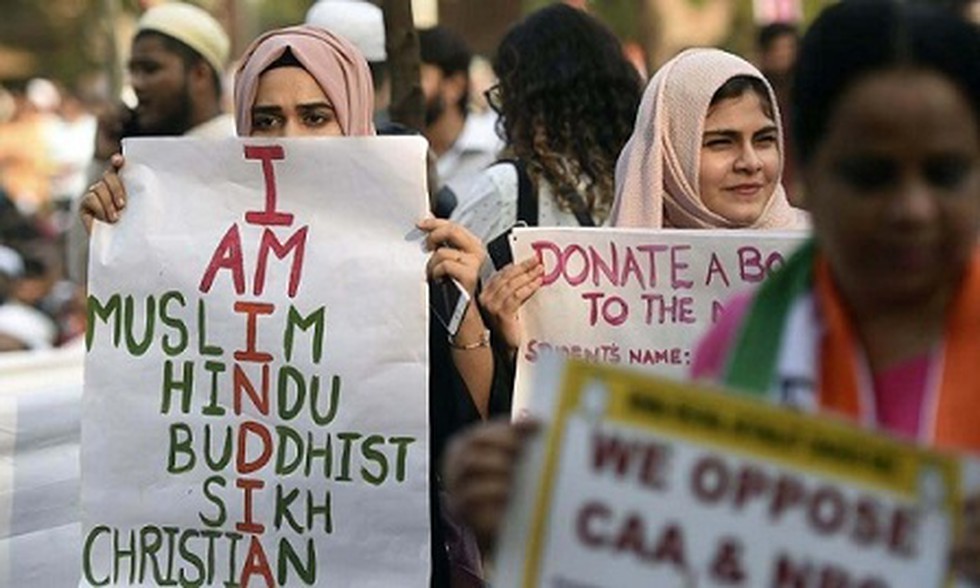'Religious freedom, related human rights in India under constant threat,' says US body

The USCIRF report examines how various policies adopted and implemented by the Indian government have cultivated an environment that is increasingly hostile toward religious minority communities.
Sana Ejaz | TwoCircles.net
NEW DELHI — In its year-end update, the United States Commission on International Religious Freedom (USCIRF) has said that religious freedom and related human rights in India are under constant threat.
On November 22, the United States Commission on International Religious Freedom released a new report which provides a broad overview of religious freedom conditions in India in 2021 and 2022.
USCIRF calls itself an independent, bipartisan US federal government commission which is dedicated to defending the universal right to freedom of religion abroad. It is an advisory body USCIRF'S analysis is based on international standards Article 18 of The Universal Declaration of Human Rights (UDHR). USCIRF recommendations are not entirely binding on the US state department.
The USCIRF report examines how various policies adopted and implemented by the Indian government have cultivated an environment that is increasingly hostile toward religious minority communities. This trajectory, alongside an escalating government crackdown on civil society and dissent, is deeply alarming in a diverse, secular, and democratic country whose constitution is intended to protect religious freedom."
In its previous report published earlier this year, USCIRF recommended the US to list India as a "country of particular concern (CPC)" for engaging in and tolerating religious freedom violations.
USCIRF'S recommended 15 countries for the CPC designation. The list of the countries is India, Pakistan, China, Burman, Eritrea, Iran, North Korea, Russia, Saudi Arabia, Tajikistan, Afghanistan, Nigeria, Syrian, and Vietnam.
The panel said in its earlier report that in 2022, governments at the national, state, and local levels promoted policies that target religious conversions, inter-religious, and cow slaughter.
"In 2021, religious freedom conditions in India significantly worsened. During the year, the Indian government escalated its promotion and enforcement of policies—including those promoting a Hindu-nationalist agenda—that negatively affect Muslims, Christians, Sikhs, Dalits, and other religious minorities. The government continued to systemize its ideological vision of a Hindu state at both the national and state levels through the use of both existing and new laws. The UAPA and Sedition Law has been invoked to create an increasing climate of intimidation and fear to silence anyone speaking out against the government," the report notes.
The report also mentions the arrest of human rights activist Khurram Parvez in Kashmir and the death of octogenarian Father Stan Swamy, in July 2021, who was arrested under the Unlawful Activities Prevention Act. The report talks about the challenges faced by non-governmental organizations (NGOs), especially foreign funding.
However, the Ministry of External Affairs, responding to the USCIRF's report called it "biased and inaccurate"
"These comments reflect a severe lack of understanding of India and its constitutional framework, its plurality, and its democratic ethos. Regrettably, USCIRF continues to misrepresent facts time and again in its statements and reports in pursuance of its motivated agenda. Such actions only serve to strengthen concerns about the credibility and objectivity of the organization," the spokesperson of MEA said.
The minister of external affairs In 2020 also called the commission an "Organisation Of Particular Concern"
USCIRF condemned the release of 11 convicts in the Bilkis Bano gang-rape. “USCIRF strongly condemns the early and unjustified release of 11 men sentenced to life in prison for raping a pregnant Muslim woman and committing murder against Muslim victims during the 2002 Gujarat Riots,” it said.
On June 9, the panel expressed its concern about the use of social media as a hate-spreading tool.
"#Indian officials and non-state actors have used social media platforms to intimidate and spread hatred and disinformation against religious minority communities, contributing to numerous violent attacks," it said.
Sana Ejaz is an independent journalist from Bihar. She tweets @SanaEjaz_
